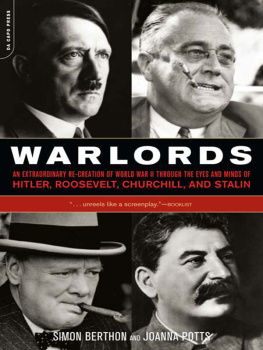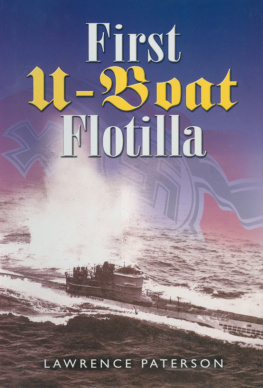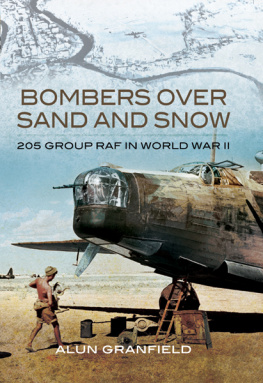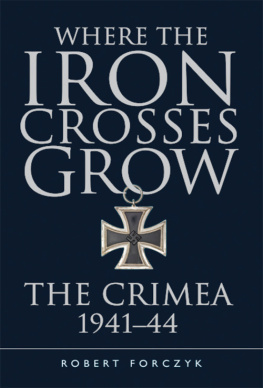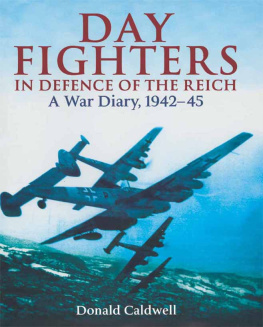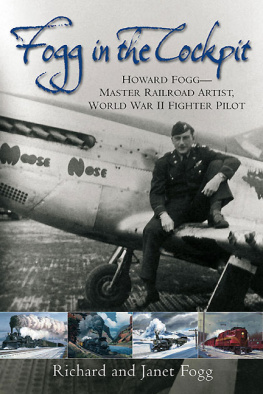All rights reserved. No part of this publication may be reproduced, stored in a retrieval system, or transmitted, in any form or by any means, electronic, mechanical, photocopying, recording, or otherwise, without the prior written permission of the publisher. Printed in the United States of America.
Cataloging-in-Publication data for this book is available from the Library of Congress.
Da Capo Press books are available at special discounts for bulk purchases in the U.S. by corporations, institutions, and other organizations. For more information, please contact the Special Markets Department at the Perseus Books Group, 11 Cambridge Center, Cambridge, MA 02142, or call (800) 255-1514 or (617) 252-5298, or e-mail .
FOREWORD
Todays politicians often complain that reporting of their trade is too personalized. Analysis of issues, they say, is sacrificed to the promotion of beauty contests between leaders and impertinent gossip about their relationships. In these early years of the 21st century, it is a curious axe to grind. The seminal decision of the contemporary transatlantic alliance, to go to war in Iraq, was a very personal one by an American president, who had inherited unfinished business from his father, and a British prime minister, who, as the emerging record makes ever clearer, flew solo in taking his country into battle. Above all, Tony Blair was influenced by the call of a special relationship with George W. Bush. Their conjunction of minds led to Britons and Americans fighting, and dying, side by side in Iraq.
This book unashamedly takes the view that, in the war of 193945, the personal decisions of the four titans at its heart also dictated its outbreak, its course and its consequences. Hitler alone decided to invade Poland; in the summer of 1940 his mental processes alone led to the turn against the Soviet Union. Stalinno one elsemade a pact with Hitler; it was his psychological and strategic vision which concluded that Hitler would not invade the Soviet Union in 1941 and left his country defenseless. In the summer of 1940 there would probably have been a different outcome if Halifax, not Churchill, had become prime minister on that fateful day of 10 May. And however much Roosevelt trimmed and tacked before he was finally hurled into war, it was he who decided that Nazi Germany, not Japan, was enemy number one; and he who took the personal gamble that unlimited generosity was the way to win Stalins collaboration in creating a new post-imperial world of peace and free nations.
These four men stood at the head of the 20th centurys dominant ideologies as they collided in the Second World War: totalitarianism of right and left, liberal democracy, social democracy, European colonialism and economic imperialism. In the war between these ideologies tens of millions of people fought and died. This book is about the heart of that conflict: the ever-changing relationships of the four warlords and their war of the mind.
In trying to understand these men, I have accumulated debts. Professor John Lukacss brilliant book, The Duel: Hitler vs Churchill, of which he kindly allowed me to make a film some years ago, made the subject an addiction. While that was about the mind games of enemies, the parallel duels of allies seemed equally beguiling and, in a succeeding project, Allies at War, on the tempestuous relationship between the French leader, Charles de Gaulle, and Churchill and Roosevelt, I owed an enormous amount to the unrivaled knowledge and wisdom of Professor Warren Kimball who introduced me in particular to the complexities of the two great democrats. For Warlords I am immensely grateful to a third historian, Professor Geoffrey Roberts, who has offered consistently shrewd advice in interpreting Stalin which I should sometimes have followed more closely.
Many people have helped in facilitating access to primary sources and contributing to original research: Professor Alexander Chubarian; Andrew Riley and the staff of the Churchill Archives Centre at Churchill College, Cambridge; the staff of the Borthwick Institute at the University of York; the staff of the Manuscripts Division at the Library of Congress; Professor Georgy Kumanev; Dr Mikhail Myagkov; the staff of the National Archives, Kew; the staff of the National Archives, Washington, D.C.; Christine Penney and the staff of the Special Collections Department at the University of Birmingham; Wilderstein Preservation; the staff of the Franklin D. Roosevelt Library; Professor Oleg Rzheshevsky; Cordula Schacht; the Countess of Avon; Lady Soames; and the family of Edward Wood, the first Earl of Halifax.
Janice Hadlow and Tim Gardam provided illuminating insights and vital early support; Hamish Mykura and Ralph Lee have brought their great intelligence to bear in the friendliest of ways. The team at 3BM Television has been as wonderful as always and special thanks are due to Simon Battersby, Frances Craig, Denysse Edwardes, Dan Korn, Oystein Lagerstrom, Glynis Robertson and Julia Yershova.
Above all I would like to thank my collaborator from the beginning of this project and co-author, Joanna Potts, without whose research, drafts and determination this book would not have been written. We would both like to thank Emma Musgrave at Politicos, our proofreader, Jonathan Wadman, and our agent, Andrew Lownie, who have shown that they really care.
And finally my thanks and love to Penelope, Helena and Olivia and my gratitude for their forbearance with an obsession that will now be parked firmly out of sight, if not entirely out of mind.
Simon Berthon
May 2005
PROLOGUE
May 10, 1940
Just after midnight, Friday, May 10, 1940. Two imposing steam engines at the head of ten luxuriously appointed coaches in bottle-green livery slid towards a junction 140 miles west of Berlin. The train had been traveling north from Hanover towards Hamburg, but now a set of points switched it to the west. It smoothly and slowly changed direction. On board this special train, code-named Amerika, was Adolf Hitler. The Fhrer was on a one-way ticket to Armageddon.
With Hitler was his personal secretary, Christa Schroeder, a breezy and attractive young woman of 32 who was full of admiration for the charm and vitality of the boss. She wrote an excited letter to a friend describing her great adventure. The day before, the inner circle in Hitlers office in the Reich Chancellery, of which she was thrilled to be part, had only been told that they were going on a trip. Its destination and length were a secret. Once the train had left Berlin, they asked the boss if they were going to Norway, the main theater of battle on that day between Germany and Great Britain. Teasingly Hitler appeared to confirm their guess: If you behave you will be allowed to take a seal hide home with you.
At dawn the train arrived at a station whose name plates had been removed. It turned out to be Euskirchen, 30 miles from the German frontier. Hitler and his party transferred to cars which took them through villages whose names were also missing and replaced by military signs. Finally they headed up a dirt track overshadowed by birches towards a small, flat clearing high in the forest spotted with concrete bunkers and posts. They had reached their destination: Felsennest, Hitlers new headquarters.

